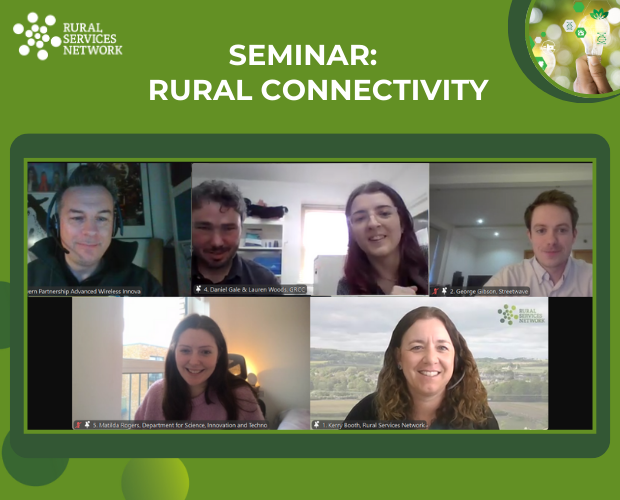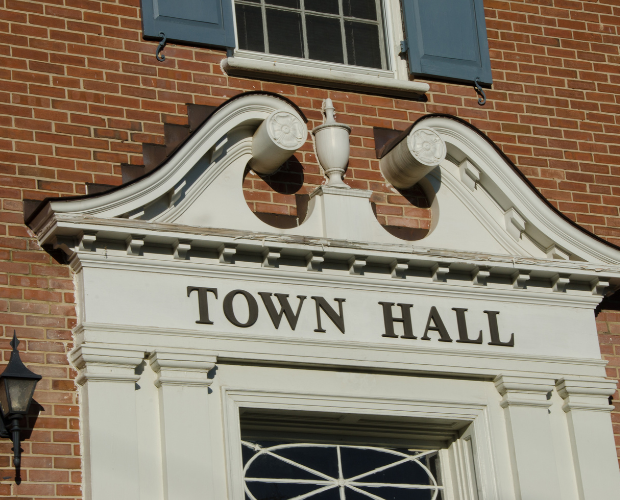T: 01822 851370 E: [email protected]
A healthcare settlement for rural England?
HOW can we ensure debates about health and social care address issues faced by rural communities? Jessica Sellick investigates.
In 2013, The King's Fund established the 'Commission on the Future of Health and Social Care in England'. Chaired by Dame Kate Barker, the Commission explored what a new settlement for health and social care might entail at a time of growing demand and constrained resources. With the Commission's final report published in September 2014, what "hard choices" do we have to make and how can we ensure debates on the future of health and social care are not consigned to the 'too difficult basket', especially in rural England? Jessica Sellick investigates.
It's almost impossible to pick up a newspaper or turn on the news without finding something about the NHS and/or social care. Launched in 1948, the NHS has grown to become the world's largest publicly funded health service. It now employs more than 1.7 million people, including 39,780 GPs, 370,327 nurses, 18,687 ambulance staff and 105,711 hospital and community health service staff. Funding for the NHS comes directly from taxation and for the period 2012-2013, the NHS had a budget of £108.9 billion. NHS England publishes statistics on a range of health and care subjects. An initial trawl of the database revealed some staggering figures:
* Weekly information compiled by NHS England shows in one week alone (8-14 September 2014) there were 427,076 attendances at A&E departments in England.
* Provisional 2013-2014 Social Care Activity Statistics show the number of contacts from new clients in 2013-2014 was 2,157,000 (up 4% from 2012-2013 and up 6% from 2008-2009). Of these, 994,000 required a further assessment or commissioning of ongoing service (an increase of 3% from 2012-2013) while 1,164,000 were dealt with at the point of contact (a rise of 5% from 2012-2013).
* Quarterly performance analysis by Monitor found 147 foundation trusts (which make up two-thirds of all NHS trusts) failed to meet a number of national targets including waiting times, routine surgery and cancer services. For the first time, the sector as a whole posted a deficit: £167 million against a planned deficit of £80 million.
* The latest Ambulance Quality Indicators available up to July 2014 show of Category A Red 1 calls in England, the proportion of ambulances arriving within 8 minutes was 70.8%; and of Category A Red 2 calls in England, the proportion of ambulances arriving within 8 minutes was 68.7% = both figures failed to meet the NHS England standard of 75%. Only the West Midlands (77.7%), South Central (75.5%) and Isle of Wight (85.3%) met the Red 1 standard and only the Isle of Wight (75.6%) met the Red 2 standard. The figures themselves are compiled from the 803,820 emergency calls presented to the ambulance switchboard in July 2014 (equating to some 26,000 calls per day).
* NHS Dental Statistics for England 2013-2014 show 29.9 million patients were seen in a 24 month period ending June 2014; a 1.8 million (or 6.3%) increase from the March 2006 baseline. And 39.8 million Courses of Treatment were delivered in 2013-2014, a rise of 440,000 (or 1.1%) from the previous year.
These figures reveal how the NHS and Councils with Adult Social Services Responsibilities (CASSRs) in England are assessing and treating more people and having to do so amid the continuing need to make cost savings.
The latest tranche of research reports makes further uncomfortable reading with the Alzheimer's Society Dementia UK study estimating there will be 850,000 people living with dementia in the UK by 2015, at a cost of £26 billion a year; and 'the Ready for Ageing Alliance', a group of major national charities, warning in its report 'getting ready for ageing' that services for older people are now on the verge of meltdown. Indeed, the NHS Financial Temperature Check carried out by the Healthcare Financial Management Association (HFMA) indicates only a tenth of provider trusts (12%) were confident they would be able to achieve their financial targets for 2015/2016.
What these figures and studies bring to the fore is how health and social care systems rub up against each other: while the NHS is free at the point of use (from cradle to grave), the social care service is means-tested and free only for those with very severe needs; while funding for health is shared across all taxpayers and 'protected', for social care funding comes from local budgets which are not ring fenced. In practice, this leads to distortions. For example, cancer and dementia often place the same type of care burdens on the patient and their family, yet cancer care is funded by the health service and dementia care is not.
The Commission on the Future of Health and Social Care in England, led by economist Kate Barker, has unveiled a new and radical plan to extend free at the point of need care into social services. Rather than looking at the statistics and figures collated above, the panel was influenced by evidence from users and carers – and their distress, despair and sense of unfairness of the current situation. The final report (published September 2014) is littered with personal experiences that make upsetting reading: from Sally Ann's account of her father's end of life care (were his needs a health or social care responsibility?) or Becky whose father has complex needs and whose condition fluctuates backwards and forwards across the health and social care boundary requiring him to have 3 different assessments and initially moved to a home 22 miles from his local area requiring his wife and daughter to spend 2 hours on a bus each way changing 3 times on each journey).
These accounts led Barker and her team to look for a new pathway built around the individual patient and their carer/s as well as to investigate how far social care costs should be funded by those in need and their families, and how far they should be shared across society (thus addressing the arbitrary distinction between health and social care).
The Commission's report proposes patients have a single, comprehensive multidisciplinary assessment for all their needs, providing a care pathway rather than the current maze. A single local commissioner with one care budget would then provide critical social care free at the point of use. Free provision for less serious needs could be added as the economy improves. In Barker's pathway if social care needs classed as substantial and critical – including end of life care – were provided free, care costs of around £5 billion a year would be shifted from patients to taxpayers by 2025. The commission suggests this money could be raised by a range of means, including:
* £1.4 billion from introducing means testing for free TV licenses and winter fuel payments currently provided universally to over 75s.
* £1 billion a year by removing the current exemptions on NHS prescription charges but reducing the charge from £8.05 to £2.50 and maintaining a cap on charges to ensure a maximum medicines bill of £104 a year per person.
* £475 million by requiring people working past state pension age to pay National Insurance at a rate of 6%. This group is currently exempt from National Insurance contributions.
* £200 million by introducing means-testing for NHS Continuing Healthcare accommodation costs.
The commission rejected calls for a ring fenced NHS tax on the grounds that it would soon lose visibility while locking the system into an inflexible funding regime (although see comments from David Nicholson - former head of NHS England – on introducing an NHS tax). Extending NHS charges was also discounted because they would either be too small to make a difference or large enough to distort access.
Upon publication of the report, Barker concluded "as others have before us, that our system is not fit to provide the kind of care we need and want. We propose radical change, greater than any since 1948, that would bring immense benefit to people who fall between the cracks between means-tested social care and a free NHS. This includes people at the end of life and those with dementia or other conditions where too often there is a conflict about who pays at the expense of what people need...Our proposals would continue a system where costs are shared between the private individual and the state but with the taxpayer carrying a heavier load of that cost than at present. The cost of a more generous settlement, though large, can be afforded if phased in over time."
While the Barker report has been broadly welcomed; some commentators point to the Commission's failure to address the existing funding crisis in the NHS; suggesting that whilst the financial costs contained in the report itself may seem modest and affordable, they cannot be considered in isolation from the growing deficit already in the NHS.
Within these statistics and the Barker Report there are few (if any) references to rural. Yet now more than ever the issues they raise around access to services and funding are illuminated across rural England. If we need to redesign and adapt services in ways where quality is not compromised there are some good rural examples: the 'supporting with confidence' scheme led by Surrey County Council; the 'Rural Coffee Caravan Information Project' in East Anglia; or the 'Village Agents' scheme which operates in rural areas across England.
At a national level, the Better Care Fund (a £3.8 billion 2-year programme supported by NHS England, the Local Government Association and Department of Health) creates a local single pooled budget to incentivise local authorities and the NHS to work more closely together. Five plans have already been approved covering: Nottinghamshire, Sunderland, Greenwich, Reading and Wiltshire. Nottinghamshire, for example, is aiming to cut emergency admissions by 3.7% and save £7.8 million while Wiltshire is expecting to deliver a cut of 3.7% and savings of some £2.1 million. While the ambition to cut emergency admissions and integrate health and social care is to be applauded it may be difficult to demonstrate what the Fund delivers: there are many factors which influence emergency admissions (which may be outside the remit of the funding itself to tackle); whether people can be assessed in their own home rather than in hospital or when/how they are admitted to a care home will deliver savings; or whether any savings from any reductions in emergency admissions and from people staying in their own home (rather than hospital or a care home) will increase costs for other community services remains unclear.
Similarly, the Nuffield Trust has set up a Cavendish Group for chief executives from small and medium sized hospital trusts to share new solutions to major challenges such as growing demand for health services and the continued funding squeeze.
When the Barker Report was discussed at the LGA/RSN rural conference on 9 September 2014, there was a conversation about 'healthy rural communities' and the need for 'mixed' and 'balanced' communities if rural settlements to be sustainable. At the same time, Members and Offices from multiple Councils said they were becoming so concerned about funding models, some could foresee situations in the near future where Councils may be forced to set up and run GP and dental practices (alongside the NHS) to provide rural residents with access to local health and care.
While many people agree that maintaining the status quo and/or doing nothing would mean more rural residents would find themselves unable to access health care and social care; more consideration needs to be given to how to join up delivery, how to fund it and crucially how to bring together policies from Government alongside bottom up delivery models developed by rural communities themselves to better meet their needs. Will Barker's recommendations be implemented? Watch this space.
Jessica is a researcher/project manager at Rose Regeneration; an economic development business working with communities, Government and business to help them achieve their full potential. Jessica has undertaken a variety of projects on services, including research for Defra on alternative service delivery and local level rural proofing. In 2013 she organised an event for the RSN on inequalities and deprivation and in 2014 participated in the LGA/RSN conference workshop on health and well-being. More information about the RSN's work on health can be found here. Jessica can be contacted by email [email protected] or telephone 01522 521211. Website: www.roseregeneration.co.uk Twitter: @RoseRegen
SIGN UP TO OUR NEWSLETTER
Sign up to our newsletter to receive all the latest news and updates.









